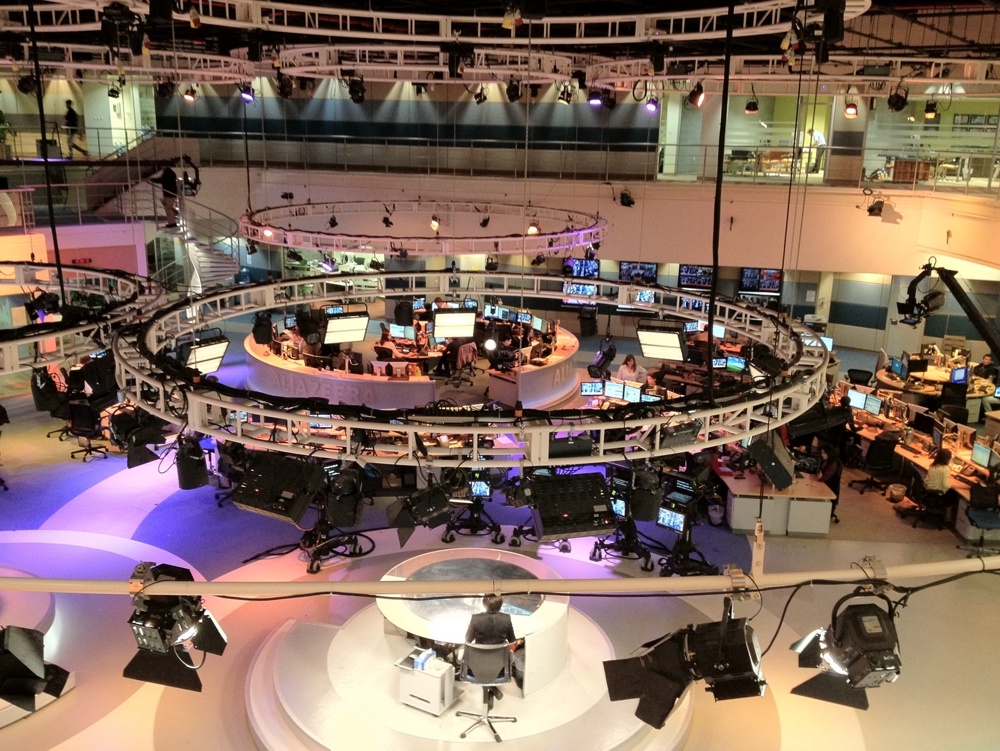How Al Jazeera Started

By Liam Nagle / Arab America Contributing Writer
Since the group’s launch in 1996, the Al Jazeera Media Network has become increasingly known in households worldwide. Initially just publishing its news in Arabic, the creation of the English-language channel helped to expand its analysis of current affairs all around the globe. But before doing so, the group had to overcome various hurdles, and the network in modern times is not without its controversies, the most recent of which is the closure of Al Jazeera in Israel. But despite this, the organization remains one of the world’s most influential Arab-based news channels. Given this, the question we should raise is – how did Al Jazeera start?
Initially, Al Jazeera was first started in 1996 as a simple satellite television channel that would deliver news about current affairs in Arabic. In doing so it was formed in the wake of the closure of BBC Arabic Television, which had been closed in April of that year. BBC Arabic Television was launched in 1994 by the Orbit Communications Company, which a member of the House of Saud, Khalid ibn Abdullah, owned.
Given this, there were also several Saudi investors in the company. However, with British and Saudi funding going towards the company, clashes over what content BBC Arabic Television could publish came to a head quickly, resulting in the network’s short lifespan. In particular, an airing of an episode of Panorama that was critical of the Saudi Arabian judicial system – particularly its usage of executions – was the final straw. Orbit accused BBC Arabic Television of failing to follow Saudi “cultural sensitivities”, resulting in investors pulling their funds and Orbit pulling the plug on the network.
But where one road ends, another begins. Many employees hired for BBC Arabic Television were now unemployed – something Al Jazeera was eager to exploit. Al Jazeera employed many of these employees throughout 1996, who were relocated to Qatar to resume work there. The Emir of Qatar provided a loan of 500 Qatari riyals (equivalent to 137 million US dollars) to sustain Al Jazeera for its first five years, and Al Jazeera went on the air for the first time in November of 1996. This endeavor proved very successful; although initially only airing for six hours a day, it began airing for twelve hours a day by the end of 1997 and then for twenty-four hours a day by 1999. The success of the Arabic-language network would help create the next English-language one.
After the 9/11 Attacks, despite the rise of Arab American hate, there was also an increasing demand for an English-language version of Al Jazeera – which the company began to work towards. First, they attempted to open an English-language news website independent of the Arabic-language website. But just twelve hours after the launch, the website began to be attacked by a series of hackings. Several pro-American organizations hit the website with denial-of-service attacks, meaning people couldn’t enter the website. The situation for the website worsened when Al Jazeera’s web providers canceled their contracts, causing the English-language website to be removed in 2003.
Nevertheless, this didn’t entirely deter Al Jazeera. In 2005, they announced that they would create an English-language news channel for an international audience, which opened without issue in November of 2006. It surpassed several of its targets, noticeably popular in Europe, but still lacking attention in America up until 2011, perhaps caused by the perception that Al Jazeera was sympathetic to extremist causes. Since then, Al Jazeera has become one of the predominant international news networks. In particular, it became known for its on-the-ground coverage of events such as the 2011 Arab Spring and the 2008-2009 Gaza-Israel Conflicts.
Using this success, Al Jazeera also attempted to open a new branch called Al Jazeera America after it had purchased Current TV. Although largely independent, the new branch would work closely with Al Jazeera English. However, Current TV had only received some 28,000 views at any time and was dropped by Times Warner Cable following Al Jazeera’s procuring of the company. It appears that the new Al Jazeera-led channel also didn’t fare well, as in 2016, their operations were closed due to the “economic landscape.”
Al Jazeera is now one of the world’s leading news sources and is perhaps the most influential Arab-based network. It had its share of problems when it started, but ultimately, it managed to exceed its planned targets and was therefore able to open more and more branches. Nevertheless, they were still attacked on the grounds of promoting extremism – a sentiment mirrored now by the Israeli closure of the network at the beginning of May. Despite this, Al Jazeera English claims to have a viewership of over 350 million households per month, and it doesn’t seem that this will stop soon.
Check out our Blog here!








